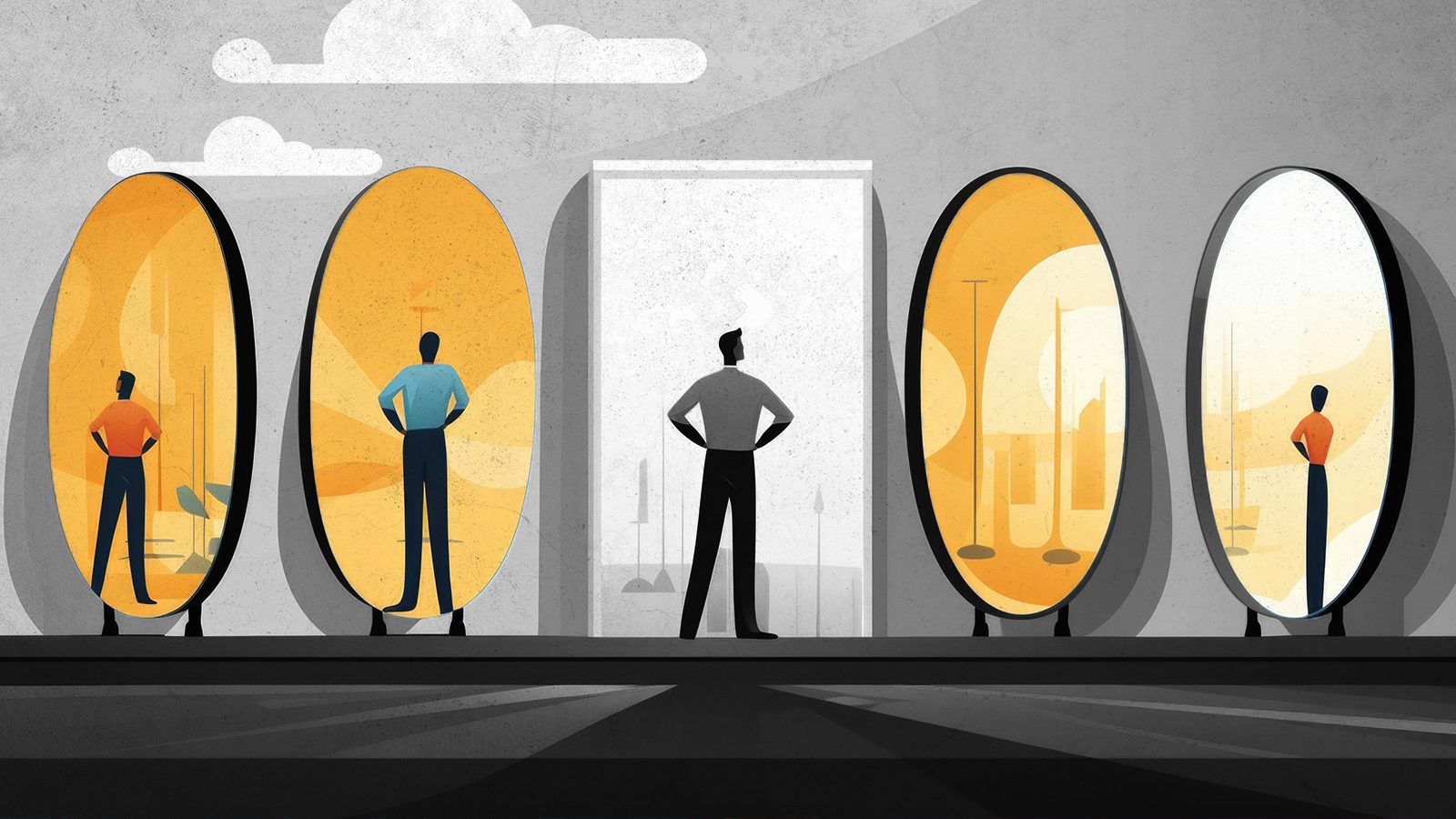Understanding and avoiding risky behaviors can help maintain healthy relationships and positive social interactions. It promotes self-awareness and appropriate behavior in social interactions, allowing you to get along with those around you.
When addressing risky behaviors, it’s essential to consider self-awareness and appropriate behavior. They allow for building stronger relationships as you recognize other people’s needs and feelings while making thoughtful decisions. With self-awareness, you’ll know how to behave in specific situations and assess your growth in all areas.
Many risky behaviors contribute to mental health issues and other complications. Knowing the behaviors to avoid helps with promoting positive behavior in social situations. It can improve your life and overall well-being while allowing you to live a fulfilling life.
#1 – Aggressive or Violent Outbursts
Aggressive or violent outbursts indicate anger issues that can escalate the situation. It negatively impacts relationships and disrupts your well-being. Some of the negative impacts include the following:

- Escalation of conflicts and strain on interpersonal connections: Aggressive or violent outbursts can cause conflict to escalate rather than allow you to resolve issues positively. It can quickly strain your relationships, potentially causing irreparable damage.
- Harm to others’ physical and emotional safety: When risky behavior leads to physical aggression or verbal abuse, it harms those around you. It negatively impacts your relationships and can cause further issues because it disregards their safety.
- Decreased self-esteem: Verbal abuse damages self-esteem as it contributes to humiliating and intimidating the person you’re doing it to. It often involves criticism, blame, isolation, and threats, creating long-term psychological effects.
- Loneliness and isolation: These risky behaviors can make people want to stay away from you, causing you to feel lonely and isolated. They may be afraid of your outbursts or want to avoid your aggression.
#2: Excessive Alcohol or Drug Consumption
- Substance abuse, binge drinking, and drug dependency can all negatively impact your physical and mental health. Some of the risks associated with these things include:
- Judgment and decision-making impairment: Abusing drugs or alcohol can interfere with your judgment and increase your chances of doing something you shouldn’t. You’re more likely to experience an accident or injury from motor vehicle crashes, falls, and burns.
- Relationship and reputation damage: When other people see you engage in excessive alcohol or drug consumption, it can damage your reputation. One of the ways it can harm your reputation is by increasing your risk of legal problems, including DUIs or other criminal charges that go on your public record.
- This behavior can disrupt your relationship with friends, family, and coworkers. It can make them uncomfortable around you or cause employment issues.
- Adverse physical health consequences: Excessive alcohol or drug consumption can lead to many physical health consequences, including the following:
- high blood pressure
- brain damage
- heart disease
- stroke
- blood clots
- liver disease or damage
- high cholesterol and fat levels
- digestive problems
- cancer
- Mental health complications: When you’re under the influence of drugs or alcohol, it can lead to the following complications:
- difficulty thinking
- trouble speaking
- memory issues
- increased risk of depression, psychosis, or anxiety
- higher risk of suicide attempts
#3: Chronic Lying or Deception
Chronic lying or deception often involves dishonesty, manipulation, and a lack of trustworthiness. When you behave this way to those around you, it can result in negative consequences, including the following:
Erosion of trust in relationships
Chronic lying or manipulation makes it clear to others that they can’t trust you. When this happens, it prevents you from forming solid connections with those around you.
Strain on personal and professional connections
Frequent lying can make socialization difficult because it involves controlling and dominating those around you. It can cause interpersonal problems with your friends, family, and coworkers as they work to avoid your behavior.
Damage to one’s reputation and integrity
Frequent deception can negatively impact your reputation because people will know they can’t believe you. It’ll eventually become common knowledge that you lie often, and those around you will view you as untrustworthy or dishonest.
Increased stress levels
Lying takes a toll on your mental health, increasing your stress levels as you try to keep up with the lies you tell others. Research shows that it can also cause distress by making it harder to function and potentially leading to dangerous situations.
#4: Reckless or Risky Driving or Traffic Violations
Dangerous driving, frequent or excessive speeding, and recklessness are all risky behaviors others won’t approve of. Since these things can all impact those around you, it’s something you don’t want them to witness or hear about. Some of the dangers associated with reckless driving and traffic violations include the following:
Risky driving leads to accidents and injuries
Recklessness or dangerous driving can cause severe accidents that injure you, other drivers, and passengers. It’s best to avoid this behavior rather than show others how risky you can be.
Legal consequences and fines
Reckless driving is illegal and can lead to criminal penalties, including jail time and fines. If someone gets injured or dies because of your behavior, it could lead to prison time. These legal consequences often remain on your public record for everyone to see.
Other potential consequences include:
- having your driver’s license revoked
- probation time or court-ordered community service
- restitution to victims
- higher insurance premiums
Negative impact on others’ safety and well-being
Reckless driving shows disregard for others’ safety and well-being. Accidents can happen quickly, leaving no time for you to correct the issue. It potentially leads to death or injury, and it causes stress and anxiety for those on the road around you.

#5: Compulsive Gambling or Risky Financial Moves
There are many risks associated with compulsive gambling, including excessive debt and financial instability. Some of the issues it can cause include the following:
- Financial strain and debt accumulation: A gambling addiction is uncontrollable and can lead to spending more money, attempting to win back the previously lost money. It leads to financial strain and debt accumulation because you use money necessary for other things like bills.
- Gambling seems like a solution to financial problems but only worsens them. It could lead to losing your home or other property.
- Strained relationships due to financial conflicts: Financial strain from compulsive gambling or irresponsibility can strain your relationships with loved ones. Spending money intended for bills, family expenses, or other things disrupts your bond. Lying about irresponsible activities also contributes to the strain because people won’t feel like they can trust you.
- Negative impact on personal and professional life: When you compulsively gamble or neglect your financial responsibilities, it can lead to losing important people in your life. It can also lead to job loss or other conflicts in your professional life. You might even start asking others to help you financially when you let your situation get out of control.
#6: Engaging in Unsafe or Risky Sexual Practices
Sexual health risks, including unprotected sex and promiscuity, can cause serious consequences. It could lead to unwanted pregnancies and other issues, including:
- Increased risk of sexually transmitted infections: Engaging in risky sexual practices and unprotected sex increases your chance of getting sexually transmitted infections (STIs). These STIs affect your health and can lead to further complications.
- Strain on intimate relationships and trust: High-risk sexual behavior can cause strain and a lack of trust in intimate relationships. Past and present encounters can contribute to the tension.
- Negative impact on mental health: Risky sexual behaviors can negatively impact your mental health and contribute to suicidal thoughts or behaviors. It interferes with your self-worth and negatively affects how you see yourself.
#7: Cyberbullying or Online Harassment
Cyberbullying and online harassment can cause many issues, and it’s a behavior you shouldn’t engage in. Here are some of the potential consequences of digital misconduct:
- Emotional distress and psychological harm to others: When you cyberbully someone, it can have an emotional impact, including sadness, anger, fear, and embarrassment. Cyberbullying can also cause low self-esteem, depression, anxiety, and suicidal thoughts or tendencies. It can make them feel alone and isolated from those around them, so stopping this behavior is essential.
- Legal consequences: Online bullying or harassment can have legal consequences because it’s a crime in many areas. The more severe the behavior, the more likely you will face trouble.
- Damaged reputation and strained relationships: Bullying people online isn’t a good look and can damage your reputation while disrupting your relationships. Most people don’t like it when someone publicly bullies others, making them think badly of you. It can also damage the victim’s reputation and their relationship with others.
#8: Impulsive, Risky, or Excessive Spending
Excessive spending and materialism can become an addiction. It’s impulsive and can lead to issues in your life, including:
- Financial debt and instability: Spending more than you make or skipping paying bills because of compulsive shopping can put you in debt. It creates financial instability and issues that worsen with time.
- Strained relationships due to financial conflicts: The financial conflicts from overspending can strain your relationships with family and friends. When you aren’t being responsible, people notice and may not want to continue a relationship with you. It can also cause financial issues for those around you if they have to pick up the slack.
- Emotional and psychological distress related to materialism: When you overspend, it can cause psychological issues and other problems. You’ll feel good while spending but then experience distress from the repercussions.
#9: Chronic Procrastination or Lack of Accountability
Chronic procrastination habits and lack of accountability negatively impact your life. It can affect your personal and professional life and contribute to the following issues:
- Missed deadlines and compromised performance: Procrastination can cause you to miss deadlines and cause job-related issues. You’ll fall behind at work and exhibit poor performance, likely due to time management issues. When this happens, it can cause you to get fired or demoted, impacting your overall life. As a result, you may encounter financial problems and excess stress levels.
- Strain on personal and professional relationships: Procrastinating or lack of responsibility can strain your personal and professional relationships. Your professional connections will be affected because you aren’t performing to the best of your abilities. When that happens, it can cause financial issues that impact your relationships.
- Personal growth and success stagnation: Procrastination affects your personal growth and success, hindering your ability to make more money. You could find yourself unemployed or frequently switch jobs without growing in any field. It can lead to limited self-belief and decreased confidence that worsens as time goes on.
#10: Isolating Yourself or Withdrawing from Social Connections
Isolation and withdrawal from social connections can negatively impact your life, making it a risky behavior to avoid. Here are some of the physical and mental health risks associated with isolation to be aware of:
- Increased feelings of loneliness and emotional distress: Not spending time with others can cause you to withdraw from social situations and feel lonely. It leads to emotional distress and causes physical health complications.
- Lack of support and connection with others: Isolating yourself from others leads to a lack of support system. You won’t have a connection with others, making you feel even more lonely.
- Deterioration of mental health and well-being: Research shows social isolation and withdrawn behavior can impact your mental health. It makes you more likely to experience depression, anxiety, cognitive decline, and substance abuse. It also disrupts your sleep quality and affects your overall well-being.

Final Thoughts on Avoiding Risky Behaviors to Increase Mental Health
Risky behaviors negatively impact your physical and mental health and can contribute to other issues. They can also affect those around you, causing long-term relationship complications.
Self-awareness and personal growth promote maintaining healthy social interactions. It helps you avoid risky behaviors to help you live a fulfilling life while forming positive social connections.

















